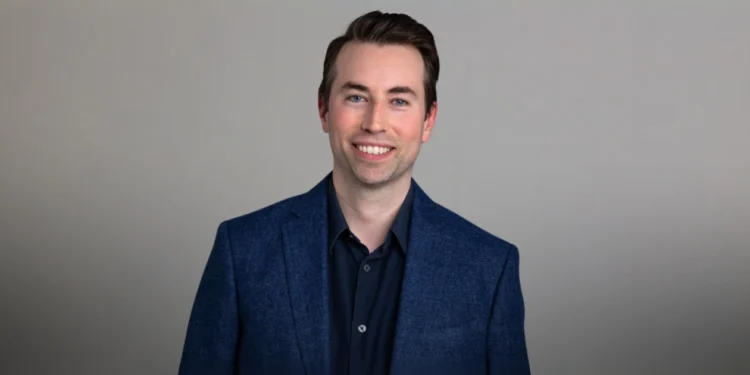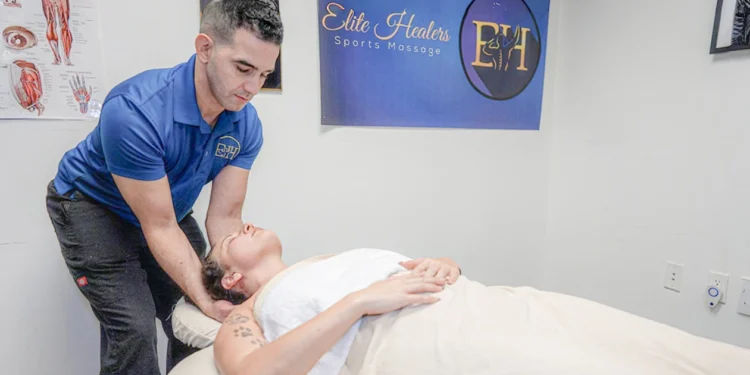Meet Dr. Chris Chappel, an inspiring functional medicine doctor whose vision is to help patients survive and thrive. Founder of Evergreen Doctors, Dr. Chappel combines traditional General Practice with innovative, evidence-based nutritional, metabolic, genetic, and Functional Medicine methods. With a deep understanding that the body is an integrated system, he leads patients to discover the underlying causes of long-term symptoms and enables them to become the drivers of their health journey.
From turning around diabetes and mental health conditions to facilitating maximum wellness, Dr. Chappel’s step-by-step programs have changed the lives of many. Supported by comprehensive training from organisations such as IFM, A4M, and ACNEM, as well as hypnotherapy, NLP, and communication credentials, Dr. Chappel offers a distinct combination of clinical understanding and individual attention. In this interview, he explores his holistic approach, his method of healing, and why healing the entire person, not merely the symptoms, is the future of medicine.
Your credentials and expertise in functional medicine are unparalleled in Australia. Can you share your journey into this field? What inspired you to specialize in functional medicine, and how has your approach evolved over the years?
My father was an ENT Surgeon and my mother was an integrative GP, so I grew up with a unique perspective on health. Working through the busy hospital and surgical teams in various hospitals solidified my view that what patients need is prevention and optimisation. So often, patients were disempowered and didn’t understand why they had the health problems they had, or what they could do about them. As a result, I decided not to pursue surgery and instead specialised as a GP, but it was soon clear that the short appointment model also didn’t really serve the patients. The solutions offered were often medications or reactionary, and always focused on short-term problems, never on optimisation. I started learning and seeking answers from experts around the world, and eventually started only doing holistic, Functional Medicine.
Functional medicine is often seen as a more holistic approach compared to conventional healthcare. Can you explain the core philosophy behind functional medicine and how it differs from traditional medical treatments in diagnosing and treating chronic conditions?
Functional medicine views people as integrative, dynamic systems rather than separate organs. We practice nutrition first, drugs as last medicine. We still do normal testing and treatment, but our aim is to optimise all areas of health and use advanced testing to provide deeper insights. Whereas traditional medicine views health as the absence of disease and treats symptoms, we view health as a dynamic process of resilience that can be improved, and so we reverse and proactively prevent disease. We also actively consider and seek to enhance the patients’ role in their wellness journey, factoring in their past and present environment, food, exercise, sleep, emotional and spiritual dimensions.
Gut health is a growing area of focus in the medical field, and many chronic illnesses are now linked to the microbiome. How does your approach to gut health through functional medicine help patients struggling with IBS and other digestive disorders?
Firstly, we consider everything influencing your system from the food, stress, sleep and toxins to how your body processes everything.
Most people don’t realise, but you can react to foods for 60 days after eating them. When you’re exposed to things like tick bites, you can develop a lifelong meat allergy. Being exposed to pollen plus a food can trigger a reaction despite them being tolerated if you experienced them in isolation. Certain chemicals can also make you far more prone to allergic-type reactions. Celiacs who keep eating dairy due to molecular mimicry can still have antibodies and abnormal scopes despite being gluten-free.
Certain bacteria in the microbiota can create amines, which then cause rashes, headaches, and sleep issues, and food sensitivity type reactions. By measuring, then targeting the weeds, planting the right species of probiotics for you, and nurturing the “garden” that is your gut with the right targeted foods, you can rapidly improve IBS in most people. When done systematically with the right test data, most of my patients are vastly improved by the end of the first month, and by the end of the 3rd month, no longer need probiotics or any other gut-supporting supplements. Often, they can then eat most foods in moderation without any issue.
Many people hesitate to embrace functional medicine due to misconceptions or a lack of awareness. What are the biggest challenges you’ve faced in integrating functional medicine into mainstream healthcare, and how do you work to overcome skepticism from both patients and traditional medical professionals?
The biggest issue is that doctors aren’t trained outside of their narrow area. Functional medicine is based on advanced lab tests, so it is evidence-based, but these tests weren’t taught at medical school because they’re new. We integrate the best elements of primary care and lifestyle medicine and help the patient find new avenues to improve their well-being regardless of the issues they face. I still refer patients to specialists and allied health practitioners and still do basic standard investigations. However I’m not satisfied with telling a patient the basic work up is fine so they’ll need to live with their symptoms forevermore, or their only option is medication, when there are deeper tests that can then guide better treatment options.
Patients generally love what I do, and many of my patients are themselves specialist doctors.
As patients get more educated through podcasts, they want holistic care, and their standard GP just can’t provide it. The medical system works great if you have an acute issue like a broken leg, but most patients these days have chronic diseases, and they soon find out that their needs aren’t met in the mainstream model, so they seek out alternatives. Our approach complements and enhances the mainstream model. Usually, when specialists and GPs see their patients improving under my care, they become curious and more open-minded. Historically, they’ve dismissed anything outside of the mainstream as “integrative medicine,” which is quite different to Functional Medicine, so it is a slow re-education process for them to learn what it is we do.
Through Evergreen Doctors, you are reshaping the way healthcare is delivered. What inspired you to build this practice, and how does it differ from conventional medical clinics? What are some of the biggest success stories you’ve witnessed as a result of this approach?
Working as a GP, I wasn’t satisfied with the basic reactionary model, and knew we needed a different type of clinic. Patients soon heard about us and came from far and wide for our holistic approaches to chronic health problems. Most of my patients have seen five doctors already by the time they see me, and are often told there’s nothing else that can be done. We take a different approach and seek to optimise all areas of health, perform advanced testing and uncover new areas we can work on.
For example, I had a patient who had to stop on the way to work to use a public toilet, two or more times, each morning. Their best friend was a gastroenterologist and for 3 years had not been able to help them, despite their best efforts. We did an advanced Functional Medicine gut test and then a 3-month gut reset. When she saw me for her review appointment, she was ecstatic; her gut issues were totally fixed. She said, “You wouldn’t believe how much free time I now have! I used to constantly be worried about where the nearest toilet was, but not anymore.”
Another patient had migraines for 20 years, heavy periods, chronically low iron, sleep and gut issues. After our 3-month program, her periods were light and pain-free, and she’d not had any migraines. Her iron was now optimal and stable, and her sleep was the best it had been in years. That’s the power of working with the root causes of problems, and having advanced testing data to guide you.
Another recent patient had been told they should not continue their studies and take the year off to rest, to help them with their chronic fatigue! They then came to see me, and by optimising the foundations of health, 4 months later, she’s now studying full time, working part time, and truly loving life.
With growing awareness of preventative health and personalised medicine, where do you see functional medicine heading in the next decade? Are there any innovations, research, or advancements that excite you about the future of healthcare?
With the synergy of chronic diseases increasing, AI becoming accessible, genetic and other testing costs coming down, patients will be empowered like never before. Functional Medicine is becoming more mainstream as patients and society realise we need complete health care – our food and environment matter. We can reverse and prevent diseases and understand our personal drivers of health like never before. Why settle for reactionary healthcare when we can do so much more?
Conclusion
Dr. Chris Chappel’s method is a welcome departure from symptom-pursuing medicine. He really focuses on knowing every patient’s story, and paired with his knowledge of Functional and Metabolic Medicine, he’s a rare and empathetic guide on the path to wellness. Through Evergreen Doctors, he brings hope and healing to those who have been instructed to “just live with” their symptoms, demonstrating instead that vitality and wellbeing are possible. As he puts it, “I want you to become the healthiest and most energised that you can be. I want your mind to be clearer than it has been in years, your inner light glowing brightly, your skin radiant and your emotional state calm and happy.” Dr. Chappel is redefining what it means to feel really well.










